Innovation has always been in Luxembourg´s DNA, and the country continues to embrace digital transformation across the financial centre. However, change is never done in a vacuum. Developing a successful innovation strategy means choosing the right partners. Collaboration between established progressive players and dynamic start-ups foster swift innovations by combining different strengths. We met with those involved in partnerships in the FinTech space to find out more.
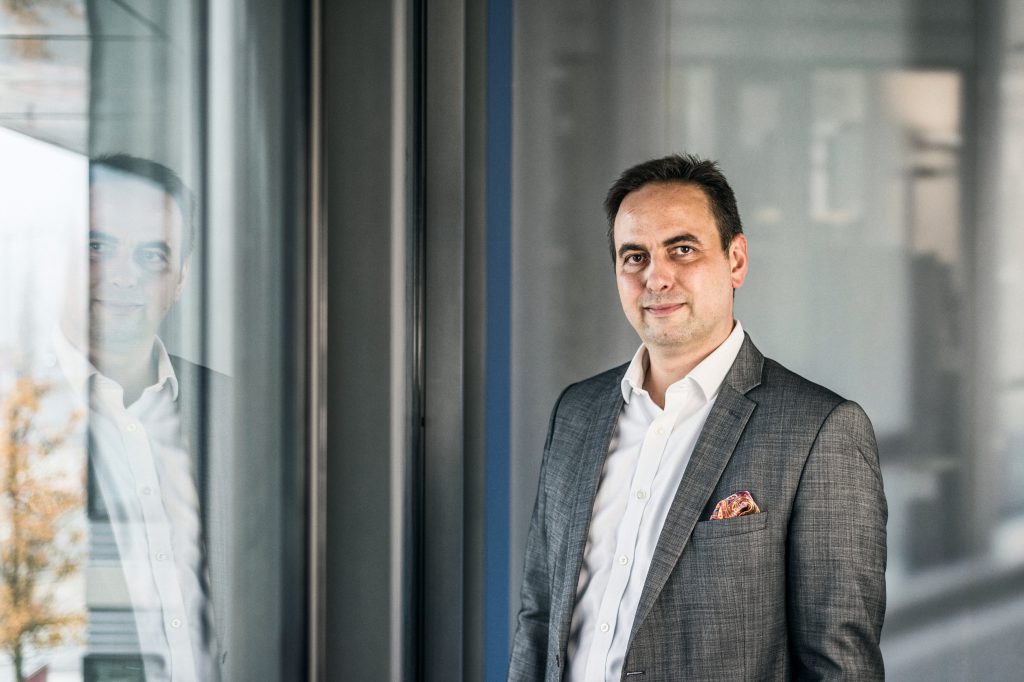
François Piret, Vice-président, Clearstream
Clearstream, one of the world’s largest settlement and custody firms for international securities, always have engaged in partnerships with dynamic, innovative FinTechs and other third parties like the Luxembourg House of Financial Technology (LHoFT) or the University of Luxembourg.

Luxembourg is fantastic: there are many initiatives, at a public and private level, to support innovative spirit.
“We constantly need to identify ways of improving our performance to continue making progress. In this context, Luxembourg is fantastic: there are many initiatives, at a public and private level, to support innovative spirit. For us, it has always been important not only to benefit from this innovative ecosystem but also to contribute to it. “ says Francois Piret, Vice-President and Head of Managed Services at Clearstream, headquartered in Luxembourg.
Less than two years ago, RegTech company Finologee, a small player on the market with a track record in leveraging partnerships with mobile operators and retail banks, began looking for a reliable IT infrastructure partner with a strategic position in the financial sector. They came to Clearstream to present their portfolio.

One of the requirements was a real appetite for innovation, which we found at Clearstream.
“One of the requirements was a real appetite for innovation, which we found at Clearstream. Other elements we were looking for was the ability to go beyond just a statement of interest – to make sure the partner would be able to speed up things – and of course a capacity to deliver,” says Raoul Mulheims, Finologee Co-Founder and CEO.
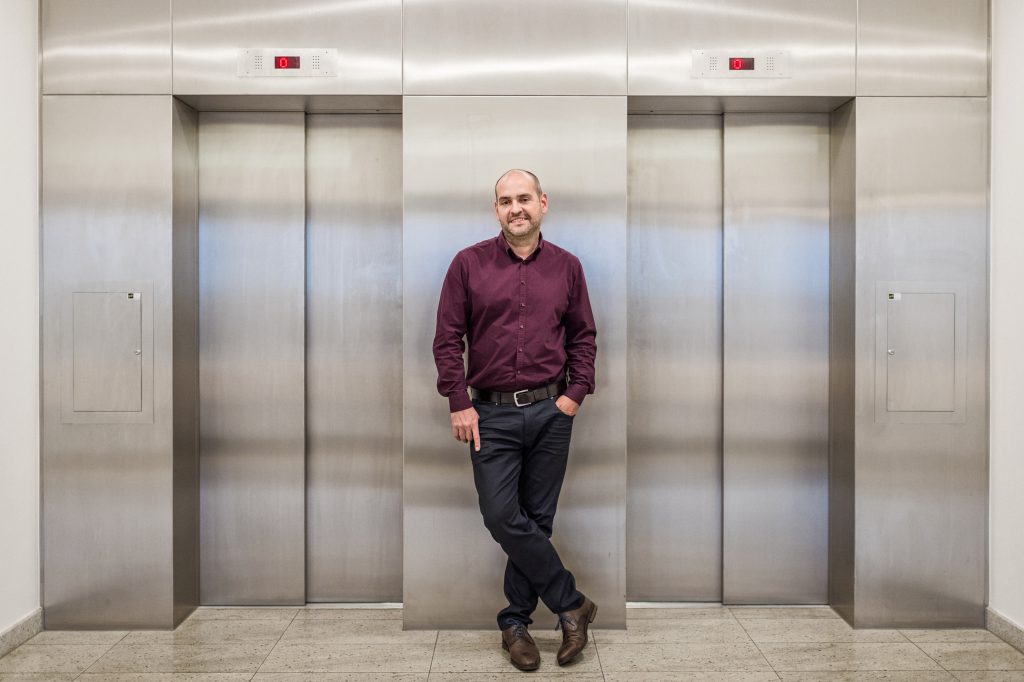
Raoul Mulheims, Co-founder CEO, Finologee
Besides being impressed by the quality of their solutions, Piret identified many possible synergies between their activities. Finologee´s extensive RegTech knowledge and Clearstream´s expertise in high-performance IT infrastructure design and regulatory compliant operations complemented each other perfectly.
“The joint work is very efficient and enriching. It is great to see how both partners tackle temporary technical constraints during the development process together despite the different company profiles. It is more a question of symbiosis, strong human connection and shared vision towards the future. As long as you are aligned, there are no challenges, just opportunities. Luxembourg’s financial centre is the perfect place to foster such opportunities.” adds Piret.

As long as you are aligned, there are no challenges, just opportunities.
The launch of the FinTech Acceleration Platform together with Germany-based FinTech Figo in May marked the first milestone within this partnership.
“The platform enables established financial industry players and new generation digital companies to distribute and leverage each other´s services resulting in new revenue opportunities,” Piret adds.

The platform enables established financial industry players and new generation digital companies to distribute and leverage each other´s services resulting in new revenue opportunities.
The first version of the platform is live and the first connections and use cases for financial industry professionals will be deployed over the next weeks, starting with KYC and PSD2 products.
“There is a gradual roll-out plan for financial services building blocks over the next months, with a variety of international FinTech specialists, making their products and services compliant with Luxembourg regulation and thus enabling CSSF-supervised entities to source these components easily,” adds Mulheims.
While compliance is a significant driver of adopting RegTech tools, European competition rules are another. Earlier this year, PSD2 became law across Europe, opening the doors to “open banking”. Under the directive, banks will need to make customer data available in a secure manner and give third parties access to their customers’ accounts. For TPPs such as FinTech start-ups and alternative banking and payments platforms, open APIs are considered the best-practice approach for technology integration.
“I’m not a fan of the term “open banking”, as it reduces the current wave of financial services digitization to the way established players currently handle business and functions,” adds Mulheims.
“Digitisation has the power to fundamentally redesign many segments of financial services as we know them today, also redefining the positions in the value chain. It is a good thing that traditional players embrace this opportunity and start their thinking process, but depending on the segment they are focusing on, keeping up with the increasing pace of change might be a huge challenge for many of them. Some are going to disappear, a lot will make less money than before, and many new players will enter the market. However, it is not just a ‘substitution of the old by the new’ phenomenon we will be observing: the roles are changing, and so are entire business models,” concludes Mulheims.

Digitisation has the power to fundamentally redesign many segments of financial services as we know them today.
All of this has opened the door for another Luxembourg player LuxHub, a European open banking platform, and the joint initiative of four major Luxembourgish retail banks.
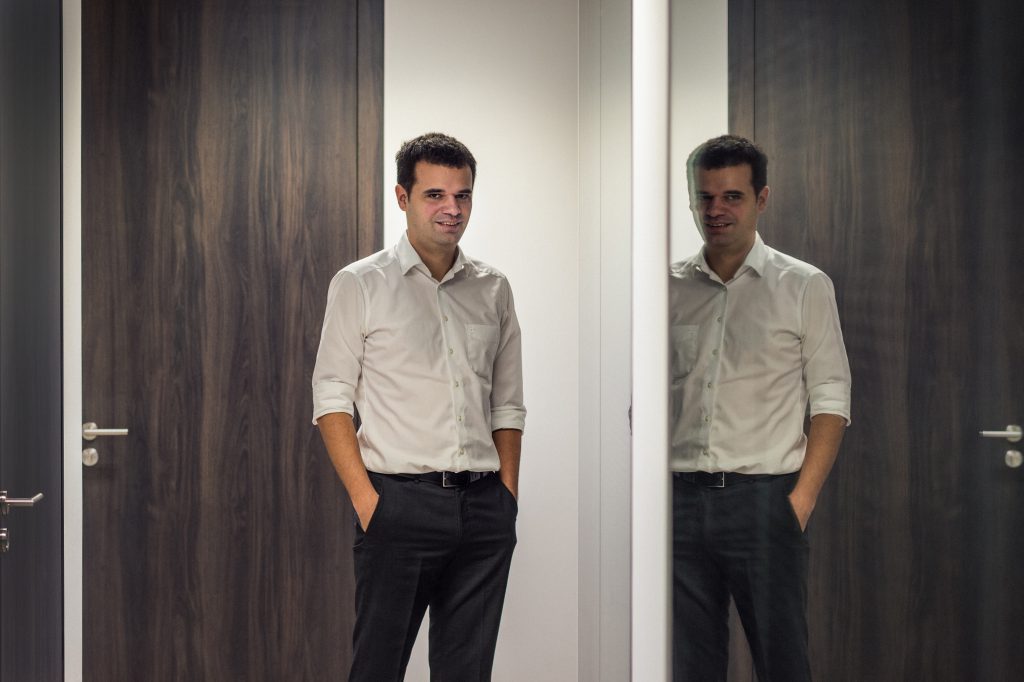
Jacques Putz, CEO, Luxhub
“LuxHub aims to create a platform for European banks to maximise the opportunities of the new API economy and mutualise costs for regulatory issues, ” explains Jacques Putz, CEO, LuxHub. We strive to support the entire digital ecosystem to take advantage of the opportunities created by PSD2. “Our uniqueness is that we focus on the complexity of PSD2. We are like a service company around PSD2 and accelerator for the API economy.”

We strive to support the entire digital ecosystem to take advantage of the opportunities created by PSD2.
As an enabler, LUXHUB facilitates activity in the first instance in PSD2 compliance. In the second step towards open banking, the platform is developing a range of solutions to helps its partners’ customers to be among the first to comply. Fourteen financial institutions have already signed up to the initiative, with others due to sign up in the coming weeks.
“Our common API platform is hosted on managed services in one of the country’s Tier IV data centres, using Luxembourg infrastructure for our services. The financial regulator, the CSSF supervises the EBRC (European Business & Reliance Centre), and this gives banks much trust in this platform.“
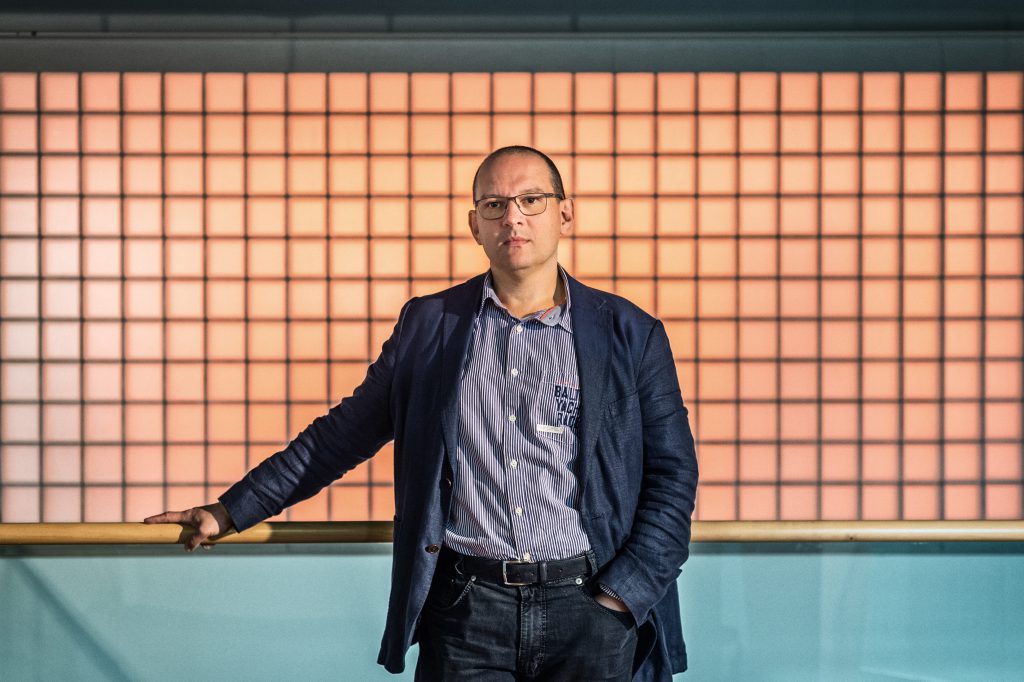
Dr Radu State, Head of Sedan research group, SnT, University of Luxembourg
Last year, the Luxembourg Bankers’ Association (ABBL) with the University of Luxembourg and its Interdisciplinary Centre for Security, Reliability and Trust (SNT) launched a joint four-year research project on the distributed ledger prototype and data analytics for KYC (Know Your Customer).
“KYC and AML are costly procedures and in many cases consist of repetitive actions performed by humans. Automating these procedures and shifting the human work towards more creative and higher qualitative added-value tasks, will decrease costs and provide a better experience for the people involved in the process,” explains project lead Dr Radu State, Head of SEDAN Research Group, SnT.
The project utilises smart contracts to help provide a KYC system shared amongst financial services firms.

The big advantage of our project is provided to the end user – the client.
“The big advantage of our project is provided to the end user – the client. Smart contracts allow end users to take control of their data. The user can decide how his/her data will be shared (and if it will be shared). Explicit authorisations are given/withdrawn by the end user, using smart contracts. This is a step forward towards a user-centric approach. From a technical perspective, this also eases the audit on how user-related data is processed. Building a shared permissioned blockchain with several banks is also dependent on the underlying technology.”
Choosing one technology out of the three major ones, which is accepted by the several stakeholders, was essential to develop the partnership. In the not too distant future Dr State expects KYC/AML/CFT to be mostly automatised.
“Blockchain technology is one enabler, but AI (Artificial Intelligence) will also play a major role. We need to advance step by step. Once we can enable a secure and efficient distributed KYC infrastructure, we can tackle the next steps.”
The Luxembourg government believes that collaboration is key to success in the digital era. Digital Luxembourg, a multidisciplinary government initiative aims to strengthen the country´s digital efforts and collaborates closely with the private sector on infrastructure investment and in skills.

Blockchain technology is one enabler, but AI (Artificial Intelligence) will also play a major role.
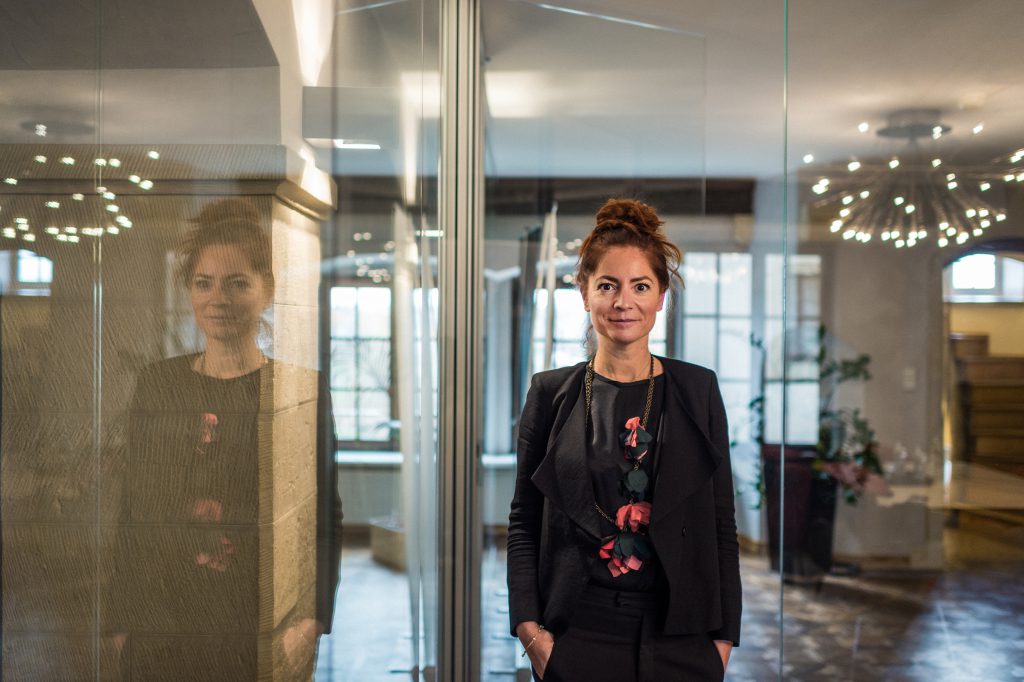
Anne-Catherine Ries, Senior policy advisor, digital Luxembourg
“We have to keep on investing in our infrastructure and new technologies which is why we have a 5G strategy and is why we invest in Blockchain competence and concepts like Infrachain, a collaboration between the government and a mix of private actors,” says Anne-Catherine Ries, Senior Policy Advisor, Digital Luxembourg. “This initiative not only strives to address business needs but also positions Luxembourg as a blockchain competence centre that can attract rare blockchain developers. Then you have the cyber security which is also a strong focal point. “

We have to keep on investing in our infrastructure and new technologies
Ries and her team at Digital Luxembourg stay in close contact with companies to strategize how to keep the ecosystem attractive and to further digital development.
“I think that has been our strength because we talk to these innovative companies and ask them what support they need. Another topic we are focusing on is skilling, and we learn from the private sector by staying in touch all the time. For instance, the question of access to skills is a significant one for PayPal which has its EU headquarters in Luxembourg. We entered into a discussion with them, and we convinced them to invest in our university. “

Claire Alexandre, Head of government relations, Emea, Paypal
PayPal employs ninety people from more than twenty countries in its hub in Luxembourg. Since it became an independent company again three years ago, partnerships have played a vital role in their story. “At PayPal, we are always looking for global thinkers to invent new ways to make money safe and accessible for all. There is a great talent pool in Luxembourg, thanks to the dynamism of the market. We’ve partnered with financial networks, issuers and acquirers; with major retailers, marketplaces and technology companies. When the opportunity arose to join forces with the University of Luxembourg, it felt like a natural extension of our existing partnership strategy,” says Claire Alexandre, Head of Government Relations, EMEA, PayPal.
The payments company is partnering with the Luxembourg National Research Fund’s (FNR) PEARL programme, which aims at recruiting internationally recognised scientists to develop and strengthen Luxembourg’s national research priorities, to fund a FinTech Chair. The aim is to inspire fresh thinking on financial services regulation much further afield, with the aim of attracting world-class researchers from around the world.
” This Fintech Chair aims at sparking important conversations about the intersection between technology, market developments and regulation. In doing so, it should help demystify technology for stakeholders like regulators and supervisors. Some of the academic work will be on RegTech, which is the use of technology for regulators. Data is greatly transforming our economies and our lives; there is no reason why regulators should not be able to leverage technology and data as well to achieve their objectives.”

At PayPal, we are always looking for global thinkers to invent new ways to make money safe and accessible for all.

Data is greatly transforming our economies and our lives
The academic and research staff will be able to test hypotheses, as well as solutions and tools aimed at understanding technology, facilitating efficient regulation of the market and assessing its impact.
“Our partnership can play 3 roles: contribute to expand further the global brand of Luxembourg as an innovative and dynamic market; attract world-class researchers from around the world, who may then decide to stay in Luxembourg; and interest other innovative firms to bring their projects to Luxembourg to be tested under the umbrella of this new research facility,” concludes Alexandre.
With the selection process now underway, the new FinTech Chair and research team will be in place for the start of the next academic year.




